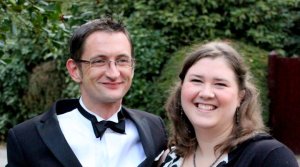2013: that was the year that was about…
1. TeachMeet Liverpool. I organised the first Liverpool TeachMeet in April. It was a fantastic day and showcased some excellent teachers and educational professionals. It was a labour of love. It was a Saturday. I’m not sure my SLT quite ‘got’ what a TeachMeet was when I first mooted the idea, but hey, I think they are now convinced. I am currently planning the next one, so watch this space!
2. #TLAB13 One of my professional highlights was my attendance at the Teaching Learning and Assessment Conference at Berkhamsted School. What a day! It started very early on the first London train from Liverpool but it was worth it. Not only did I get to hear some fantastic speakers, but I came away energised and enthused. For a profession that gets almost constant flak, us teachers are a pretty incredible bunch. One of my posts about the day is here: http://wp.me/pYpwi-4Z
3. Visiting Joseph S. Clark Prep in New Orleans. I was lucky enough to visit a high school when I went to New Orleans. It was a fascinating insight into how teachers are working in a very complex educational system. (There is a blog post; I need to finish it!)
4. Getting to grips with being (Acting) Head of English. Maternity cover is never easy. You want to do a good job but, at the same time, it’s not your job, you’re a caretaker-manager. I had the privilege of stepping up from second in department to Curriculum Leader for English for six months. It was hard work. Luckily, I work with a great team.
5. Getting to grips with being Head of Year. In September I became Head of Year 12. Wow. After five years with a departmental TLR, the pastoral side of school life has been an eye-opener. I have really enjoyed this opportunity and am sad that, come January, I am moving back into curriculum leadership. However, I feel that my experience as a pastoral leader will have added much to my leadership.
6. Meeting Twitter pals in ‘real life’. I value the inspiration, knowledge, ideas and support I get from twitter and the connections I have made as a result of being on there. In 2013, it was good to meet @joanne_rich, @mrpeel, @ChillEdU, @deadshelley, @learningspy, @nickdennis, @danpo_ and many more. It was also lovely to be reacquainted with @KristianStill. There are some who I can now call friends and others I consider virtual colleagues, rather than just random screen names and 140 character witticisms. That’s a great thing.
7. Team English. I work with some fantastic colleagues. I’ve already said that, but it cannot be over-stated. It has been a pleasure and a privilege.
8. About seeing people’s true colours. There were a difficult few weeks at work. It hardened my resolve to be the best I can be.
And 2013 wasn’t just about work, you’ll be pleased to know…
9. Finding a lost friend. Earlier this year a friend of ours went missing. It was a harrowing time for his family and closest friends. I was humbled to see how people pulled together and worked to get his name and face out there. It worked. He’s back and on the road to recovery.
10. Rediscovering a love of live music. In 2013 I have been privileged to experience some brilliant live bands. New Orleans was a feast of music, from start to finish. I also (finally!) visited Ronnie Scott’s for the first time. It will not be my last visit.





11. Cats! I can’t really do a summing up of 2013 without mention of McNulty, who I adopted in January and who is a joy. Alas, Brontë the beautiful stray who I adopted in August was sadly run over. She is missed.

12. All about New Orleans. My city. I have never felt as truly ‘me’ anywhere else. It was an incredible experience to return and I will definitely not be leaving it as long next time.




13. A reminder of the importance of friends. I lost a friend this year. He died suddenly and unexpectedly. It reunited me with a group of friends I’d lost touch with. It made me appreciate the fact that friends are friends no matter where or how you met, or indeed how often you all get to meet up. He is much missed.

And 2014? What will this be the year of?
(I’ve left a few blank… I’m hoping 2014 surprises me!)
1. Health. I am pledging to get fitter. I need to make time for exercise to balance the mental workload. And hey, if they want me to work till I’m 69 then I’m going to have to be seriously fit to do so!
2. Doing. And not just saying I am going to do. My biggest flaw? Maybe. I am the Queen of Procrastination. In 2014 I will be a doer and not a thinker-about-doing. Professionally and personally.
3. Marking. I’m making a concerted effort to mark smarter. I am focusing on D.I.R.T and making my marking meaningful.
4. Reading. I’ve set myself a ‘Fifty Books in 2014’ challenge and shall be blogging my progress. I want to read more for pleasure.
5. Writing. Years ago I wrote all the time. Now, I seem to forget what an excellent tool it is for reflection, idea generation and all round relaxation.
6. KS3 Curriculum. My big professional challenge as Acting Curriculum Leader is to re-vamp our KS3 curriculum in preparation for all the changes that are coming. A big job, yes, but one I am looking forward to.
7. Appreciation. Saying thank you and really taking time to recognise and appreciate those around you is often overlooked. I’m putting it on the to-do list as a permanent item in 2014.
8. Photography. In 2014 I’m determined to get out and shoot more.
9. Career. I think this is the year for me to make some decisions. Hopefully they will be the right ones.
10. De-cluttering. I need to do a bit of this. Physically and metaphorically.
11. Learning and getting better at being a teacher. #TLAB14 and Northern Rocks are two main teaching CPD events I’ve got booked into the calendar so far. Generally though, here’s to a year of collaboration and learning.
12.
13.
14. New Orleans. I have to go back. My favourite Chris Rose quote kinda says it all: “She is a New Orleans girl, and New Orleans girls never live anywhere else and even if they do, they always come back. That’s just the way it is. This is where she belongs. End of discussion.”

